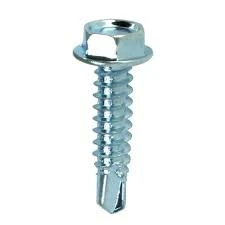fully threaded hex head bolts
Understanding Fully Threaded Hex Head Bolts
In the world of fasteners, bolts play a crucial role in ensuring the strength and stability of various structures, from machinery to buildings. Among the myriad of fastener options available, fully threaded hex head bolts stand out due to their unique design and wide range of applications. This article will explore what fully threaded hex head bolts are, their advantages, applications, and considerations when using them.
What are Fully Threaded Hex Head Bolts?
Fully threaded hex head bolts are a type of fastener characterized by a hexagonal head and a uniform thread along the entire length of the shank. This threading allows for enhanced grip and engagement with nut or threaded materials, ensuring a secure connection. The hexagonal head design provides a flat surface for applying torque with a wrench, making installation and removal easier.
The construction of these bolts generally involves materials like steel, stainless steel, or other alloys, often treated for added strength and corrosion resistance. The ability to fully thread a bolt makes it versatile, capable of being used in a variety of applications and compatible with various nuts and materials.
Advantages of Fully Threaded Hex Head Bolts
1. Uniform Load Distribution Fully threaded hex head bolts allow for uniform load distribution along the fastener, reducing the risk of shear failure. This is particularly important in applications where dynamic loads or vibrations are present.
2. Versatile Length Options The ability to have a fully threaded design means these bolts can be manufactured in various lengths, allowing users to select the appropriate size for their specific needs without the constraints of partial threads.
3. Enhanced Grip Since the threading extends the full length of the bolt, it can engage with the receiving materials more effectively, providing a more secure hold compared to partially threaded variants.
4. Easy Installation The hexagonal head design is amenable to mechanical fastening tools, allowing for greater torque application and facilitating easier installation and removal processes.
5. Compatibility Fully threaded hex head bolts can be paired with a wide range of nuts and washers, making them suitable for diverse fastening tasks in different materials.
Applications of Fully Threaded Hex Head Bolts
fully threaded hex head bolts

The applications for fully threaded hex head bolts are practically limitless. They are prevalent in industries such as
- Construction Used in various structural applications, including steel framing and bridges, where strength and stability are paramount. - Automotive Found in machinery, engines, and chassis components due to their reliability under high stress and vibration. - Manufacturing Employed in the assembly of machinery and equipment where precise fastening and repetition are necessary.
- Aerospace Used in aircraft assembly where lightweight yet strong bolting solutions are essential.
- Furniture Assembly Commonly used in the assembly of furniture where threaded connections provide robust joints.
Considerations When Using Fully Threaded Hex Head Bolts
While fully threaded hex head bolts offer numerous benefits, there are important considerations to keep in mind
1. Proper Torque Application It's vital to apply the correct torque during installation to avoid over-tightening, which can lead to thread stripping or bolt failure.
2. Material Selection Depending on the environment, choosing the right material and coating (e.g., galvanized, stainless steel) is crucial to prevent corrosion and ensure longevity.
3. Thread Standards It is essential to ensure compatibility with industry standards in terms of thread pitch and profile, which can influence the performance of the fastener.
4. Environmental Factors Exposure to extreme temperatures or corrosive substances can impact the performance of fully threaded bolts, requiring careful consideration during selection.
Conclusion
Fully threaded hex head bolts are a fundamental component in a wide array of applications where strength, reliability, and versatility are required. Their unique features and advantages make them a popular choice in various industries. By understanding their attributes and applications, professionals can make informed decisions on the appropriate use of these essential fasteners, contributing to the safety and integrity of their projects. Whether in construction, manufacturing, or automotive applications, they are a go-to solution for high-performance fastening needs.
-
Weatherproof Plastic Expansion Anchors for OutdoorNewsJun.06,2025
-
Sustainability in the Supply Chain: Eco-Friendly TEK Screws ProductionNewsJun.06,2025
-
Load-Bearing Capacity of External Insulation FixingsNewsJun.06,2025
-
Double Head Bolts: Enhancing Efficiency in Industrial MachineryNewsJun.06,2025
-
Corrosion Resistance in Chipboard Screws: Coatings for Wholesale DurabilityNewsJun.06,2025
-
Butterfly Toggle Bolts : Enhancing Structural ResilienceNewsJun.06,2025
